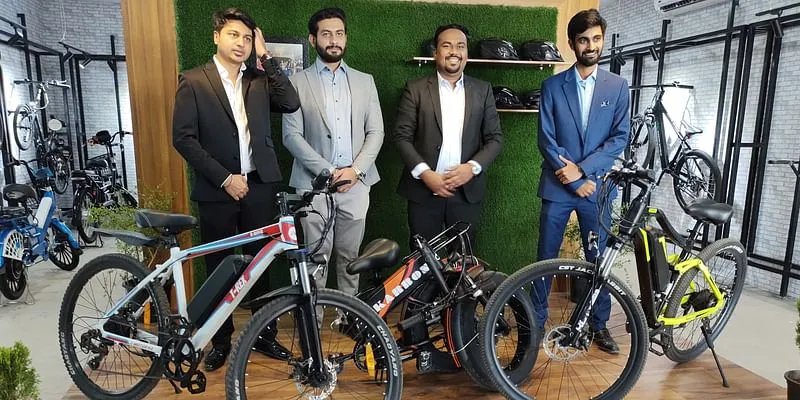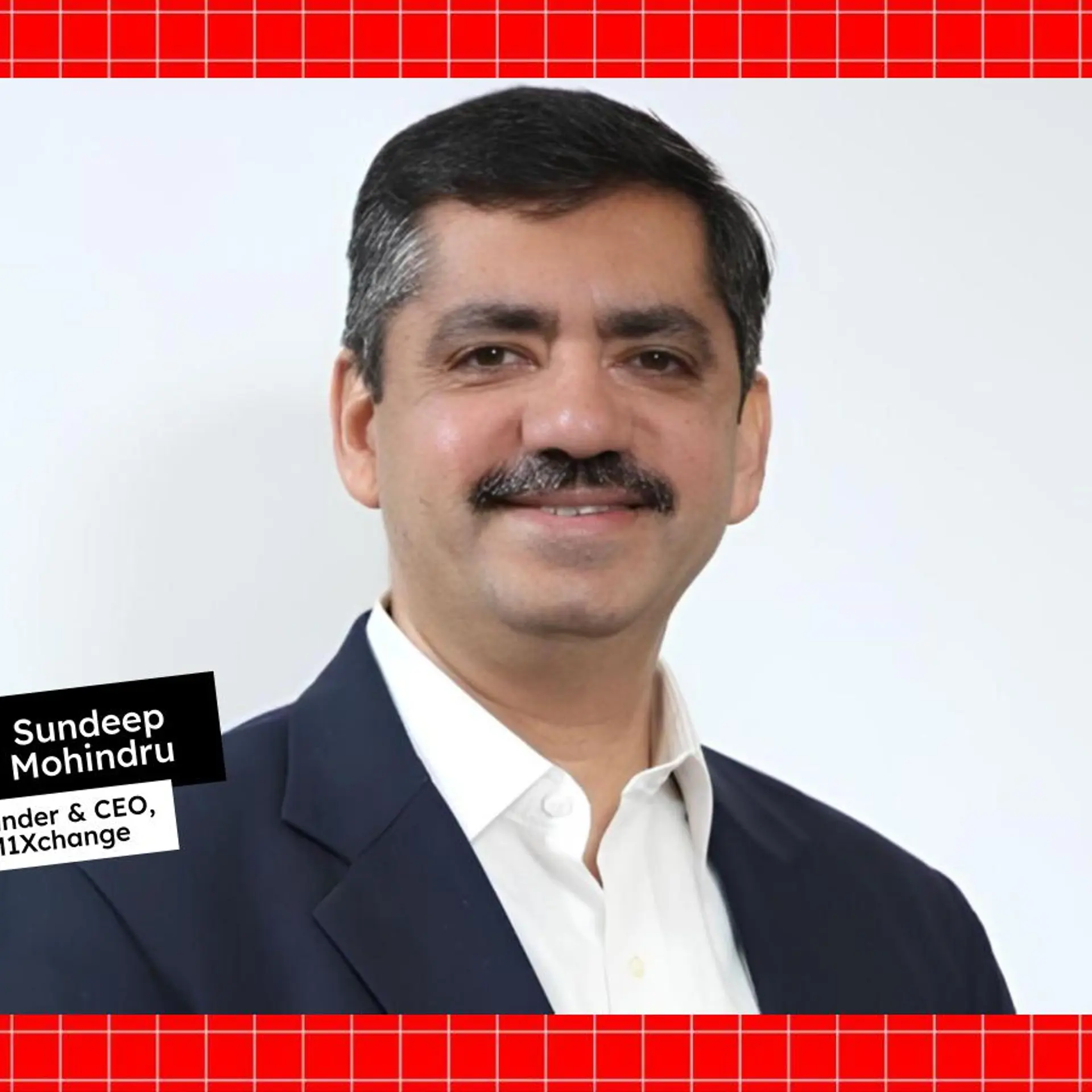From B2B to B2C, how EMotorad founders found the right match for e-bikes in India
The Turning Point is a series of short articles that focuses on the moment when an entrepreneur hit upon a winning idea. This week, we look at electric cycle manufacturer, EMotorad
While the e-bicycle consumer segment is still at a very nascent stage in India— accounting for less than 1% of the total bicycle sale—the sector is on the rise. According to KPMG, the Indian bicycle market size was pegged at $1.3 billion and is expected to grow to $3.51 billion by 2030, with e-bikes accounting for the strongest growth.
Rajib Gangopadhyay, Kunal Gupta, Aditya Oza, and Sumedh Battewar recognised the segment’s potential early on and founded (EM) in 2020.
The Pune-based electric vehicles startup offers eco-friendly e-bikes for adventure seekers, daily commuters, or casual riders. The EV startup utilises local sourcing and manufacturing capabilities in India to bring premium electric cycles to the Indian market.
It has since expanded its business to Japan, the UAE, Europe, and Nepal. Alongside onboarding 160+ dealers in India, EM currently is present across 82 towns and cities in India and abroad.

L-R: Kunal Gupta, Rajib Gangopadhyay, Sumedh Battewar and Aditya Oza
From B2B to B2C
The founders have been working in the mobility industry for companies like ONN Bikes and My Ride.
“Our journey began as a B2B consulting firm in the European markets,” Kunal Gupta, Co-founder and CEO, EMotorad says, stating that he and his co-founders were consultants in 2017.
The founders worked as independent e-bike consultants for product and sales. They found that there was a market gap in the electric cycle segment and decided that it would be better for them to launch a B2C business as they already had the requisite knowledge and experience.
During a brainstorming session, they came up with the idea of EMotorad.
“We recognised that EV was the future and that we wanted to spearhead a revolution in this space,” says Kunal.
After thorough research, they launched bootstrapped B2C business EMotorad in 2020.
The original problem statement, Kunal shares, “was to help the world challenge the status quo of commuting for everyone and to provide people with a cost-effective alternative to IC vehicles.”
Their vision was to spread awareness of the benefits of e-bikes and change the way people view mobility, with a focus on community and health.
Started at the height of the COVID-19 pandemic, EMotorad faced several logistical and supply chain issues. “However, we stuck it out, determined to break through and come out stronger than before, which has now reaped fantastic results as we see the demand for e-bikes in India greatly increasing over the last few years,” adds Kunal.
Pedalling for health, Chennai startup Voltrix Mobility's electric bicycles focus on tech
What now?
In October this year, the EV brand raised Rs 24 crore in a Pre-Series A funding round led by Green Frontier Capital (GFC)—an investment firm that specialises in climate investment, LetsVenture, and Ivy Growth Associates.
The startup aims to utilise the funds to accelerate business growth, hire top industry talent, and scale the business. In addition, it also plans to build a layer of tech on top of the existing e-bike that will grant users access to a platform for the cycling community, focusing on health and community benefits.
EMotorad is a team of over 120 employees based out of Pune and Spain. The company claims to sell over 35,000 units globally. While the startup’s primary business model is B2C, it also has partnerships with B2B retailers.
In the coming year, EMotorad plans to further develop its in-house tech team to bring forth a slew of innovations. It plans to expand its reach to international markets.
“We want to focus on R&D to ensure that our e-bikes push the envelope towards user-friendly tech and releasing new and improved products whilst building upon a platform to help people be a part of a larger community,” Kunal further adds.
Edited by Kanishk Singh







